- Home
- Robert E. Howard
Grim Lands Page 2
Grim Lands Read online
Page 2
While much of Howard’s fiction may seem unrelentingly grim, arguably his most commercial series, during his lifetime, consisted of humorous stories. A lifelong fan of boxing, in 1929 Howard sold his first story of the battling merchant sailor, Steve Costigan, and subsequently twenty-one of these rollicking misadventures appeared in the pages of Fight Stories, Action Stories, and Jack Dempsey’s Fight Magazine (as well as one in The Magic Carpet Magazine, with Costigan’s name changed to Dennis Dorgan, under the byline “Patrick Ervin”). “But don’t be fooled by the slapstick nature of the stories,” says Chris Gruber; “the themes of love, responsibility, sacrifice, and honor churn just beneath the surface of the rugged, burlesque humor.” And certainly Costigan and his other boxing characters stand alongside his great heroic fantasy characters in their refusal to give up, no matter how badly they may seem to be getting beaten.
In 1930, Howard began corresponding with that other great weird fictionist of the day, H. P. Lovecraft, and in short order the two were sending one another lengthy letters full of commentary, travelogue, anecdote, and argument: they debated art vs. commerce, law and order vs. individual freedom, and most famously, “civilization” vs. “barbarism.” Very early in this correspondence, Lovecraft encouraged Howard to use his own Southwestern milieu as a background for his stories, as Lovecraft had done with New England and August Derleth, another Weird Tales writer with whom Howard would strike up a correspondence, had done with his native Wisconsin. This nudge sent Howard down the path of western writing, which would increasingly occupy him for the remainder of his short life.
The Man on the Ground is a very effective little vignette that reflects Howard’s fascination with the fuedists of Texas, and with hatreds so strong that they become almost concrete, living things. Leo Grin has noted that, in Howard’s work, “Heroes, villains, animals, plants, landscapes – all seethe and writhe with a breathtaking, unrelenting, very human emotionalism,” and that “In Howard’s worldview every obstacle – whether Man or Beast or Nature – becomes not just an impediment but an enemy, something not only to be battled but to be hated.” Within the stories included in the two volumes of The Best of Robert E. Howard will be found ample evidence that Howard’s characters are often driven by hate, to the point that their foes become no longer human but mere objects of that hatred. In this tale, and in the later Red Nails, we see that the hatreds born of feuds can become something like forces of nature, against which the individuals caught up in them are as helpless as they would be against a tempest. Again, I think it is important to recognize that, in writing about hatred as a motivating force, Howard is not advocating for it; as with his seemingly unrelenting focus on violent action, he is portraying an aspect of human nature, one with which we find ourselves all too often confronted in the daily news.
In Old Garfield’s Heart, Howard takes the admonition to write about his native environs literally: “Lost Knob” is his fictional version of Cross Plains, the small Central West Texas town in which he lived. Howard’s love of Texas history and legend came not only from his reading but from talking with old pioneers, men and women who had lived through the frontier days of a region through which the last Indian raids had swept only about fifty years before this tale was written.
“The phenomenon of an outlaw looting a section under the guise of an officer of the law was not unknown in the early West – as witness Henry Plummer, and some others,” Howard wrote Lovecraft. He went on to relate at some length episodes from the beginning and end of Hendry Brown’s brief career as marshal of Caldwell, Kansas: the marshal had come to a bad end when he and some accomplices tried to rob the bank. Not long afterward, Howard told August Derleth that he had just written a thirty-thousand-word western story in which “my main character was drawn from Hendry Brown.” That story was Vultures of Wahpeton, and along with passages from his letters, it strongly hints of the promise that Howard would someday write the epic of the Southwest he hoped for. Howard was a bit ahead of his time with the western: it would not be until several years after his death that the bleak worldview and the protagonist whose hat isn’t white would come into their own in the western magazines.
Another of Howard’s commercially successful series was his tall tales of Breckinridge Elkins, a mountain man with a heart of gold and a head of lead. An Elkins story ran in every issue of Action Stories from March 1934 until they ran out in October 1936, four months after Howard’s death (a final story appeared in January 1937). When the editor of Action Stories moved over to Argosy, he asked Howard to provide a series similar to the Elkins. The young author had wanted to write for Argosy since he was a teenager, but one boxing story in 1929 had been all he had been able to manage, so he now took advantage of the opportunity and created Pike Bearfield, of Wolf Mountain, Texas. Pike may be a little slow in the thinking department, but if there’s mayhem in the offing he’s likely to be right in the thick of it. Gents on the Lynch is a riotously funny tale, and is also interesting in that we here see Howard putting a humorous spin on a plot very similar to Vultures of Wahpeton, almost as if he’d asked himself what would happen if Breck Elkins, rather than Steve Corcoran, had been recruited as a deputy in Wahpeton.
Pigeons from Hell may not be the most chilling title in the world of horror fiction, but the story it heads is among the first rank. Based on tales the young Bob Howard had heard from an old former slave, while living briefly in the piney woods of East Texas, it is a tale of terror in an old deserted house, and of a ghastly revenge. There is some period racism, but we hope it won’t mar your enjoyment of this chilling masterpiece. Lovecraft said of Howard, “Seldom if ever did he set down a lifeless stock character or situation and leave it as such. Before he concluded with it, it always took on some tinge of vitality and reality …” When Howard dealt with tropes of horror fiction, stock monsters like werewolves, vampires, and the like, he always gave them some unusual twist, something that made them uniquely his. In this tale, his creation of the zuvembie gives a Howardian spin to the zombie.
Wild Water finds Howard about as close to home as it is possible to get. Like Old Garfield’s Heart, the story is set in the “Lost Knob” country, but it is based on an actual event that had taken place the year before the story was written. Some thirty miles south of Cross Plains lies the larger town of Brownwood, where Howard had attended his final year of high school and two years of commercial courses, and where he visited frequently with his good friends Clyde Smith and Truett Vinson. In 1931, work began on a dam eight miles north of Brownwood to impound water from the Pecan Bayou and Jim Ned Creek to create a reservoir. Engineers had estimated that it would take two years, at the normal rate of rainfall, to fill the reservoir. But on July 3, 1932, a torrential rain fell over the area, and the entire reservoir was filled, 7,000 acres filled to an average depth of more than twenty feet, in just six hours. It was the equivalent of suddenly diverting the flow of Niagara Falls into the watershed of the two small creeks. The story also speaks eloquently of where Howard’s sympathies resided during the Depression.
In Howard’s library were two books on Thomas Edward Lawrence, “Lawrence of Arabia”: Lawrence’s own Revolt in the Desert and Lowell Thomas’ With Lawrence in Arabia. Howard had a fascination with adventurers who “went native”: Lawrence, Sir Richard F. Burton, “Chinese” Gordon, and many others. From these, and from the novels of Talbot Mundy, came the character Howard would claim was the first he ever conceived: Francis X. Gordon, known throughout the Orient as “El Borak,” “the Swift.”
“Some day I’m going to write stories about pirates and maybe cannibals,” ten-year-old Robert Howard told a neighbor, a promise he would make good on. Conan follows the red trade at various times in his career, and one of the tales of Solomon Kane features pirates and makes clear that Kane had formerly sailed with them. With his creation of Black Terence Vulmea, Howard created a buccaneer worthy of joining that illustrious company, and with the interplay between Vulmea and Captain Wentworth in Black Vulmea’s Venge
ance, he shows how deftly he can handle a slow, subtle change in the interactions between two antagonists.
In my polling of Howard fans and scholars, the top-ranking Conan story was the last one Howard wrote, Red Nails. Writing to another great Weird Tales author, Clark Ashton Smith, Howard said, “Sent a three-part serial to Wright yesterday: ‘Red Nails,’ which I devoutly hope he’ll like. A Conan yarn, and the grimmest, bloodiest and most merciless story of the series so far. Too much raw meat, maybe, but I merely portrayed what I honestly believe would be the reactions of certain types of people in the situations on which the plot of the story hung.” Howard was fresh from a trip to Lincoln, New Mexico, site of the “Lincoln County War” and the exploits of one of his favorite outlaws, Billy the Kid. To Lovecraft he had written: “I think geography is the reason for the unusually savage and bloodthirsty manner in which the feud was fought out, a savagery that has impressed everyone who has ever made an intelligent study of the feud and the psychology behind it. The valley in which Lincoln lies is isolated from the rest of the world. Vast expanses of desert and mountains separate it from the rest of humanity – deserts too barren to support human life. The people in Lincoln lost touch with the world. Isolated as they were, their own affairs, their relationship with one another, took on an importance and significance out of proportion to their actual meaning. Thrown together too much, jealousies and resentments rankled and grew, feeding upon themselves, until they reached monstrous proportions and culminated in those bloody atrocities which startled even the tough West of that day. Visualize that narrow valley, hidden away among the barren hills, isolated from the world, where its inhabitants inescapably dwelt side by side, hating and being hated, and at last killing and being killed. In such restricted, isolated spots, human passions smolder and burn, feeding on the impulses which give them birth, until they reached a point that can hardly be conceived by dwellers in more fortunate spots … I have heard of people going mad in isolated places; I believe the Lincoln County War was tinged with madness.” In Red Nails, Howard limns the very apotheosis of the feud. It is also one of his most richly symbolic, mythological tales.
“Mr. Howard’s poetry,” wrote Lovecraft, in eulogizing his friend, “– weird, warlike, and adventurous – was no less notable than his prose. It had the true spirit of the ballad and the epic, and was marked by a pulsing rhythm and potent imagery of extremely distinctive cast.” Howard was a natural poet, able to type out page after page of spontaneous, first-draft poetry of surprising quality in letters to his friend Clyde Smith, who responded in kind. While some of his verse was published in small poetry magazines, and a number of his best appeared in Weird Tales, Howard’s preferences were for traditional forms such as the ballad and the sonnet that were falling out of favor. In his poetry we find many of the themes that inform his fiction, and in his fiction we frequently find his poetic voice. Indeed, Steve Tompkins says “His poetry … haunted his prose, imbuing it with an intensity and imagery that wedded drive and dream.” And Steve Eng, whose magisterial “Barbarian Bard: The Poetry of Robert E. Howard” remains the best study of the subject, and among the finest essays on Howard’s work in general, observed, “Robert E Howard may have sensed that poetry suited his imagination better than did prose. His fictional Sword-and-Sorcery heroes and foes would seem to be more naturally chanted or sung about than portrayed in paragraphs.”
We hope that these two volumes of The Best of Robert E. Howard will introduce new readers to the breadth and depth of his work, and that they will even have some of his fans taking a deeper look. “What is essential in a work of art,” wrote Carl Jung, “is that it should rise far above the realm of personal life and speak from the spirit and heart of the poet as a man to the spirit and heart of mankind.” In using the ancient symbols and imagery and themes of the hero tale, Howard was able to speak from his own heart to ours, in language that is rich with meaning without being expository. “The artist is the one who communicates myth for today,” said Joseph Campbell. “But he has to be an artist who understands mythology and humanity and isn’t simply a sociologist with a program for you.” Or, as Hannah Arendt put it, “Storytelling reveals meaning without committing the error of defining it.”
So read the stories of Robert E. Howard for enjoyment – the meaning will reveal itself when you are ready for it.
Adventure is calling.
Rusty Burke
July 2007
By This Axe I Rule!
I
“MY SONGS ARE NAILS FOR A KING’S COFFIN!”
“At midnight the king must die!”
The speaker was tall, lean and dark, and a crooked scar close to his mouth lent him an unusually sinister cast of countenance. His hearers nodded, their eyes glinting. There were four of these – one was a short fat man, with a timid face, weak mouth and eyes which bulged in an air of perpetual curiosity – another a great somber giant, hairy and primitive – the third a tall, wiry man in the garb of a jester whose flaming blue eyes flared with a light not wholly sane – and last a stocky dwarf of a man, inhumanly short and abnormally broad of shoulders and long of arms.
The first speaker smiled in a wintry sort of manner. “Let us take the vow, the oath that may not be broken – the Oath of the Dagger and the Flame. I trust you – oh, yes, of course. Still, it is better that there be assurance for all of us. I note tremors among some of you.”
“That is all very well for you to say, Ascalante,” broke in the short fat man. “You are an ostracized outlaw, anyway, with a price on your head – you have all to gain and nothing to lose, whereas we –”
“Have much to lose and more to gain,” answered the outlaw imperturbably. “You called me down out of my mountain fastnesses to aid you in overthrowing a king – I have made the plans, set the snare, baited the trap and stand ready to destroy the prey – but I must be sure of your support. Will you swear?”
“Enough of this foolishness!” cried the man with the blazing eyes. “Aye, we will swear this dawn and tonight we will dance down a king! ‘Oh, the chant of the chariots and the whir of the wings of the vultures – ’ “
“Save your songs for another time, Ridondo,” laughed Ascalante. “This is a time for daggers, not rhymes.”
“My songs are nails for a king’s coffin!” cried the minstrel, whipping out a long lean dagger. “Varlets, bring hither a candle! I shall be first to swear the oath!”
A silent and sombre slave brought a long taper and Ridondo pricked his wrist, bringing blood. One by one the other four followed his example, holding their wounded wrists carefully so that the blood should not drip yet. Then gripping hands in a sort of circle, with the lighted candle in the center, they turned their wrists so that the blood drops fell upon it. While it hissed and sizzled, they repeated:
“I, Ascalante, a landless man, swear the deed spoken and the silence covenanted, by the oath unbreakable!”
“And I, Ridondo, first minstrel of Valusia’s courts!” cried the minstrel.
“And I, Volmana, count of Karaban,” spoke the dwarf.
“And I, Gromel, commander of the Black Legion,” rumbled the giant.
“And I, Kaanuub, baron of Blaal,” quavered the short fat man, in a rather tremulous falsetto.
The candle sputtered and went out, quenched by the ruby drops which fell upon it.
“So fade the life of our enemy,” said Ascalante, releasing his comrades’ hands. He looked on them with carefully veiled contempt. The outlaw knew that oaths may be broken, even “unbreakable” ones, but he knew also that Kaanuub, of whom he was most distrustful, was superstitious. There was no use overlooking any safe guard, no matter how slight.
“Tomorrow,” said Ascalante abruptly, “I mean today, for it is dawn now, Brule the Spear-slayer, the king’s right hand man, departs from Grondar along with Ka-nu the Pictish ambassador, the Pictish escort and a goodly number of the Red Slayers, the king’s bodyguard.”
“Yes,” said Volmana with some satisfaction. “That was you
r plan, Ascalante, but I accomplished it. I have kin high in the counsel of Grondar and it was a simple matter to indirectly persuade the king of Grondar to request the presence of Ka-nu. And of course, as Kull honors Ka-nu above all others, he must have a sufficient escort.”
The outlaw nodded.
“Good. I have at last managed, through Gromel, to corrupt an officer of the Red Guard. This man will march his men away from the royal bedroom tonight just before midnight, on a pretext of investigating some suspicious noise or the like. The various sentries will have been disposed of. We will be waiting, we five, and sixteen desperate rogues of mine who I have summoned from the hills and who now hide in various parts of the city. Twenty-one against one –”
He laughed. Gromel nodded, Volmana grinned, Kaanuub turned pale; Ridondo smote his hands together and cried out ringingly:

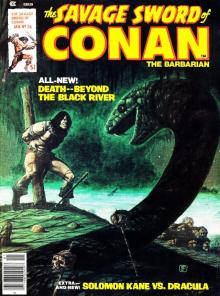 Beyond the Black River
Beyond the Black River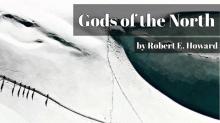 Gods of the North
Gods of the North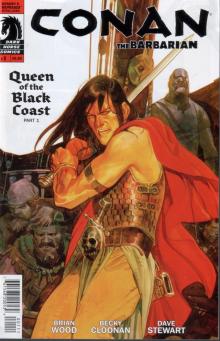 Queen of the Black Coast
Queen of the Black Coast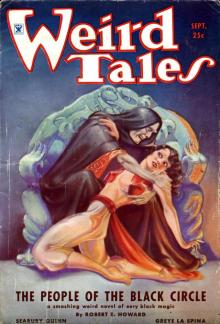 The People of the Black Circle
The People of the Black Circle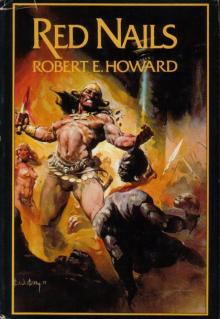 Red Nails
Red Nails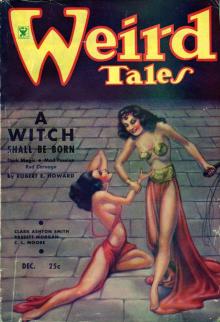 A Witch Shall Be Born
A Witch Shall Be Born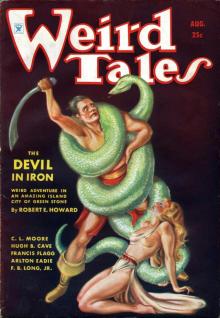 The Devil in Iron
The Devil in Iron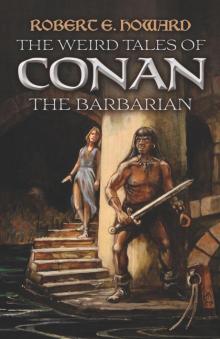 The Weird Tales of Conan the Barbarian
The Weird Tales of Conan the Barbarian The Bloody Crown of Conan
The Bloody Crown of Conan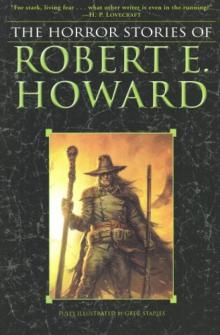 The Horror Stories of Robert E. Howard
The Horror Stories of Robert E. Howard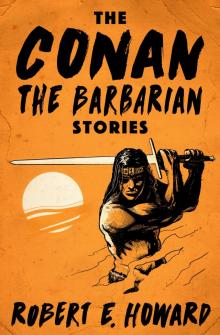 Conan the Conqueror
Conan the Conqueror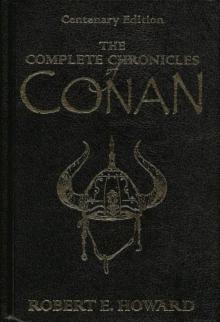 Conan the Barbarian
Conan the Barbarian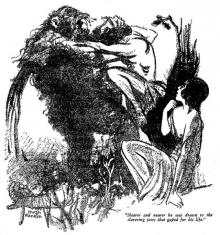 Shadows in the Moonlight
Shadows in the Moonlight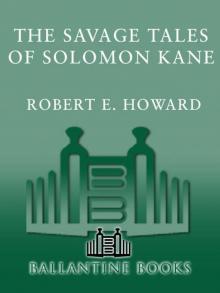 The Savage Tales of Solomon Kane
The Savage Tales of Solomon Kane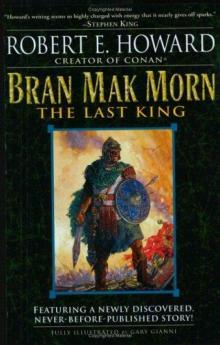 Bran Mak Morn: The Last King
Bran Mak Morn: The Last King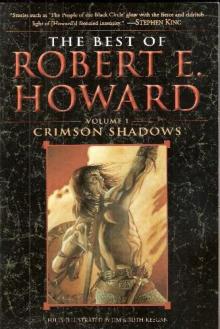 The Best of Robert E. Howard Volume One: Crimson Shadows
The Best of Robert E. Howard Volume One: Crimson Shadows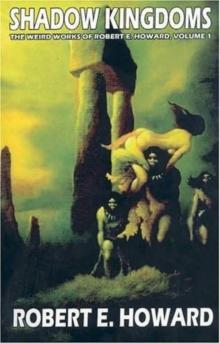 The Best of Robert E. Howard: Crimson Shadows (Volume 1)
The Best of Robert E. Howard: Crimson Shadows (Volume 1)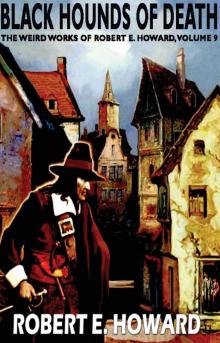 Black Hounds of Death
Black Hounds of Death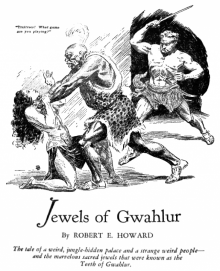 Jewels of Gwahlur
Jewels of Gwahlur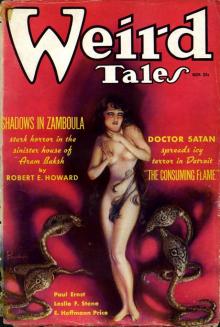 Shadows in Zamboula
Shadows in Zamboula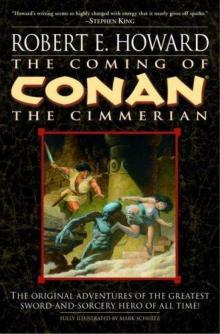 The Coming of Conan the Cimmerian
The Coming of Conan the Cimmerian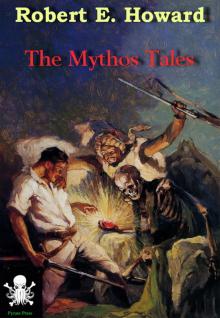 The Mythos Tales
The Mythos Tales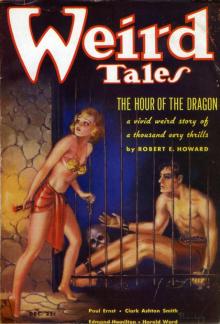 The Hour of the Dragon
The Hour of the Dragon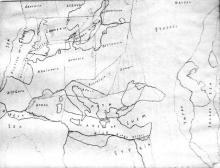 The Hyborian Age
The Hyborian Age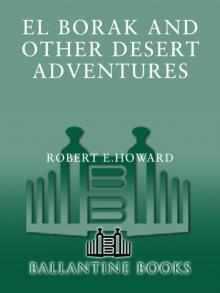 El Borak and Other Desert Adventures
El Borak and Other Desert Adventures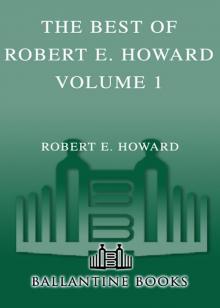 The Best of Robert E. Howard Volume 1 The Best of Robert E. Howard Volume 1
The Best of Robert E. Howard Volume 1 The Best of Robert E. Howard Volume 1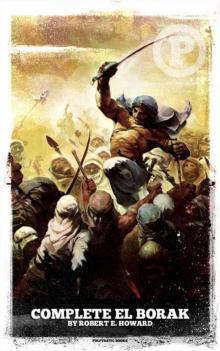 El Borak: The Complete Tales
El Borak: The Complete Tales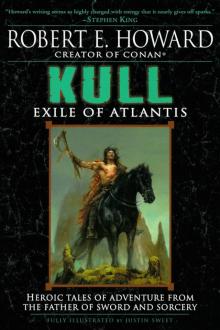 Kull: Exile of Atlantis
Kull: Exile of Atlantis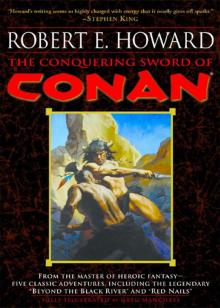 The Conquering Sword of Conan
The Conquering Sword of Conan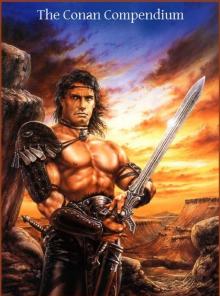 The Conan Compendium
The Conan Compendium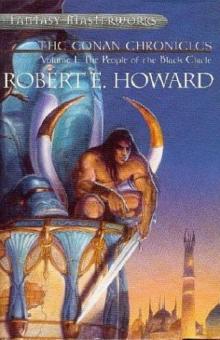 The Conan Chronicles: Volume 1: The People of the Black Circle
The Conan Chronicles: Volume 1: The People of the Black Circle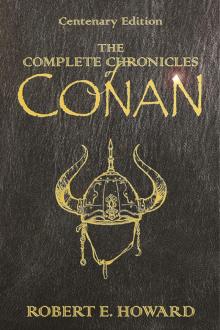 The Complete Chronicles of Conan: Centenary Edition
The Complete Chronicles of Conan: Centenary Edition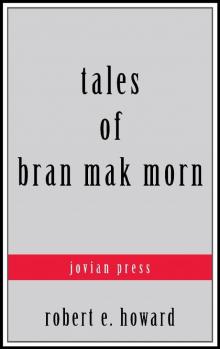 Tales of Bran Mak Morn (Serapis Classics)
Tales of Bran Mak Morn (Serapis Classics)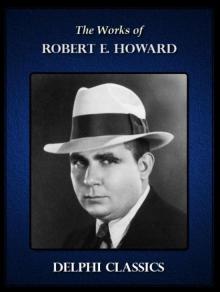 Delphi Works of Robert E. Howard (Illustrated) (Series Four)
Delphi Works of Robert E. Howard (Illustrated) (Series Four)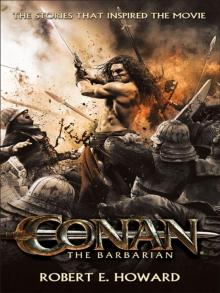 Conan the Barbarian: The Stories That Inspired the Movie
Conan the Barbarian: The Stories That Inspired the Movie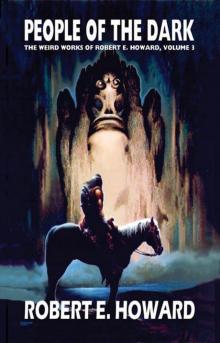 People of the Dark Robert Ervin Howard
People of the Dark Robert Ervin Howard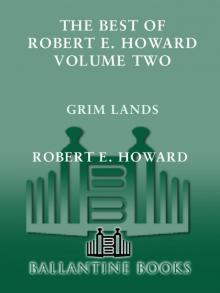 Grim Lands
Grim Lands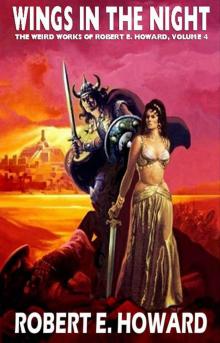 Wings in the Night
Wings in the Night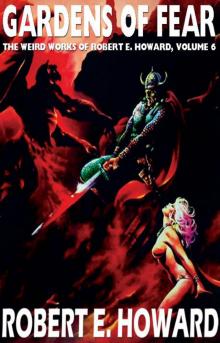 Gardens of Fear
Gardens of Fear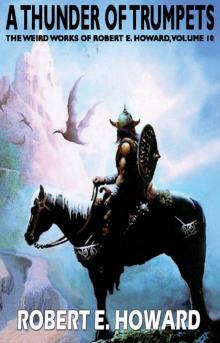 A Thunder of Trumpets
A Thunder of Trumpets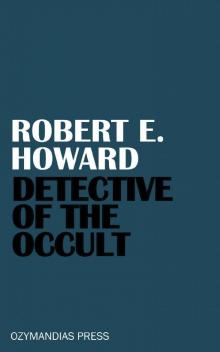 Detective of the Occult
Detective of the Occult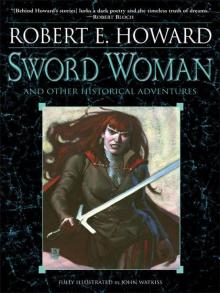 Sword Woman and Other Historical Adventures
Sword Woman and Other Historical Adventures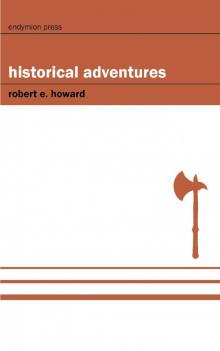 Historical Adventures
Historical Adventures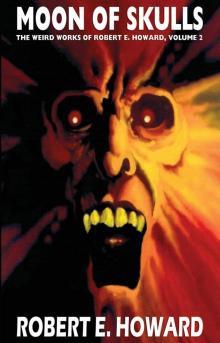 Moon of Skulls
Moon of Skulls The Robert E. Howard Omnibus: 97 Collected Stories
The Robert E. Howard Omnibus: 97 Collected Stories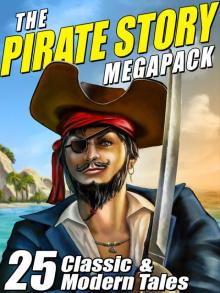 The Pirate Story Megapack: 25 Classic and Modern Tales
The Pirate Story Megapack: 25 Classic and Modern Tales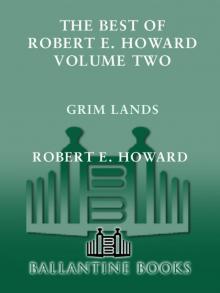 The Best of Robert E. Howard, Volume 2
The Best of Robert E. Howard, Volume 2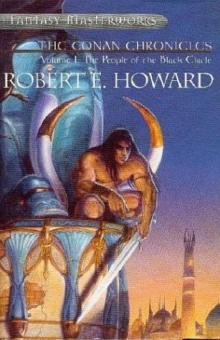 The Conan Chronicles, Vol. 1: The People of the Black Circle
The Conan Chronicles, Vol. 1: The People of the Black Circle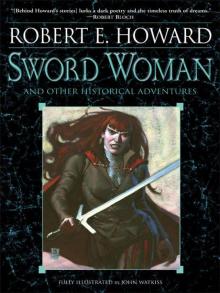 Sword Woman and Other Historical Adventures M
Sword Woman and Other Historical Adventures M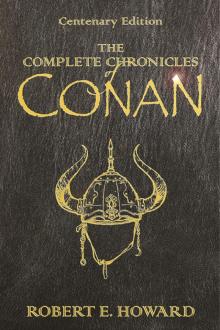 The Complete Chronicles of Conan
The Complete Chronicles of Conan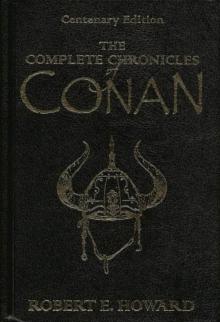 Conan the Barbarian: The Chronicles of Conan (collected short stories)
Conan the Barbarian: The Chronicles of Conan (collected short stories)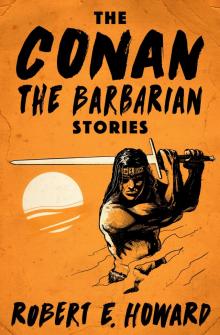 The Conan the Barbarian Stories
The Conan the Barbarian Stories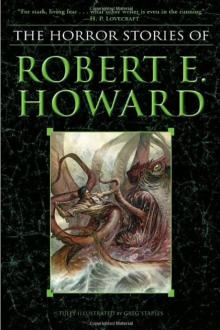 The Best Horror Stories of
The Best Horror Stories of Tigers Of The Sea cma-4
Tigers Of The Sea cma-4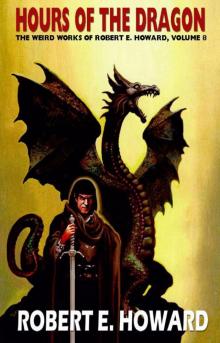 The Hours of the Dragon
The Hours of the Dragon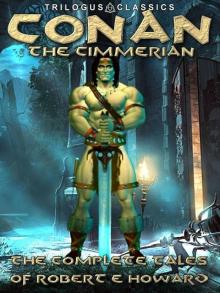 Conan the Cimmerian: The Complete Tales (Trilogus Classics)
Conan the Cimmerian: The Complete Tales (Trilogus Classics)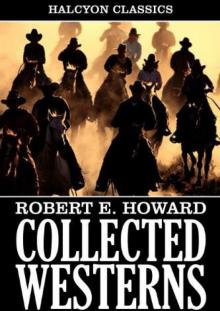 Collected Western Stories of Robert E. Howard (Unexpurgated Edition) (Halcyon Classics)
Collected Western Stories of Robert E. Howard (Unexpurgated Edition) (Halcyon Classics)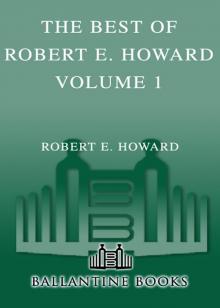 The Best of Robert E. Howard, Volume 1
The Best of Robert E. Howard, Volume 1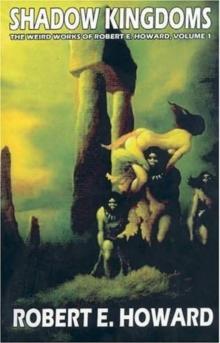 Shadow Kingdoms
Shadow Kingdoms